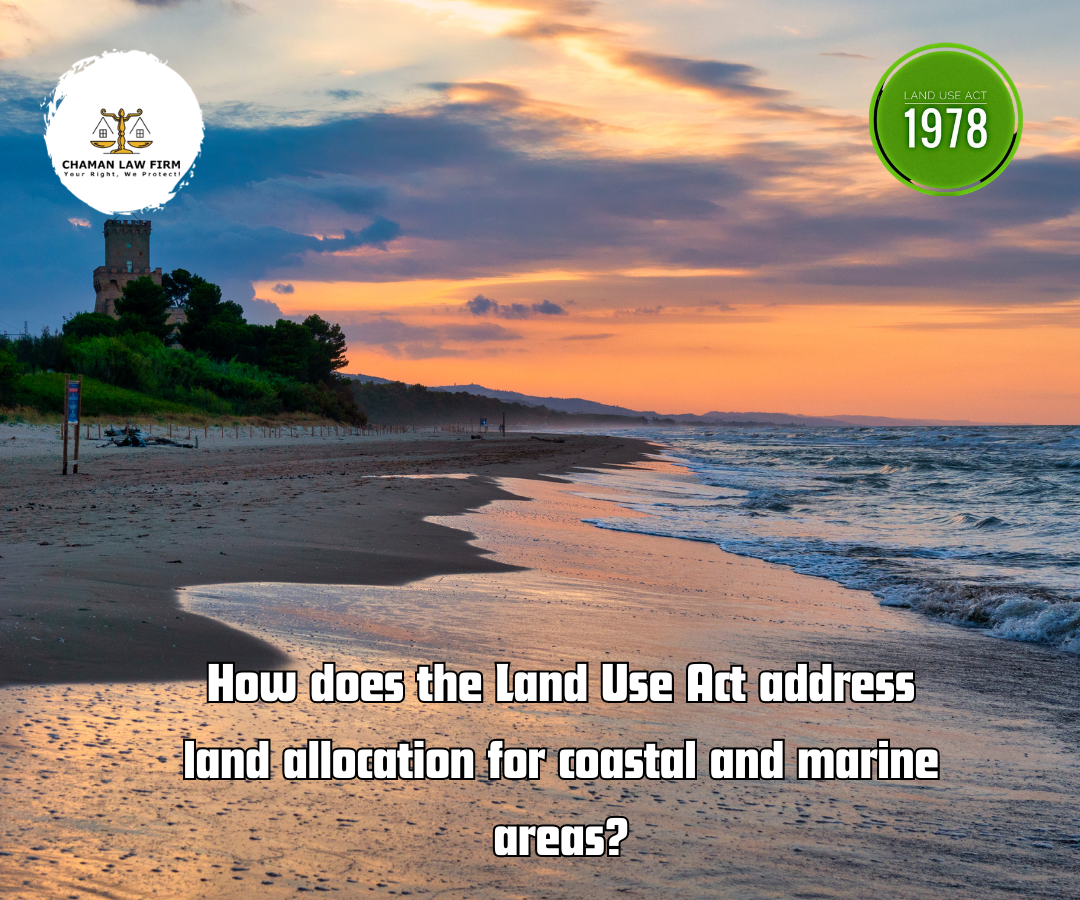
The Land Use Act is a crucial legislation that governs land administration and allocation in Nigeria. While it primarily focuses on land use and ownership in the country, it also addresses the specific concerns related to coastal and marine areas. In this blog post, we will explore how the Land Use Act addresses land allocation for these unique and important regions. Coastal and marine areas hold immense ecological significance and provide valuable resources for both the environment and the economy. However, their delicate nature requires careful management and regulation to ensure sustainable use and protection. The Land Use Act recognizes this and incorporates provisions to address the specific challenges associated with these areas. One key aspect of the Land Use Act that pertains to coastal and marine areas is the concept of customary rights. Customary rights are traditional rights of occupancy over land and resources, often held by communities living in coastal regions. The Act acknowledges and protects these rights, ensuring that the interests and livelihoods of local communities are respected and preserved. Additionally, the Act empowers the government to designate specific areas as “reserved areas” or “special areas” for the purpose of protecting the environment, conserving natural resources, or promoting tourism. This designation allows for stricter regulations and controls over land use activities in these areas, ensuring that development is carried out in a sustainable and responsible manner. Furthermore, the Land Use Act establishes the Land Use and Allocation Committee (LUAC), which is responsible for overseeing land allocation and management. The LUAC plays a crucial role in the allocation of land in coastal and marine areas, ensuring that it is done in accordance with the principles of sustainable development and environmental protection. In order to effectively address the unique challenges of coastal and marine areas, the Land Use Act also encourages the collaboration and cooperation of relevant stakeholders. This includes government agencies, local communities, environmental organizations, and other interested parties. By fostering partnerships and promoting dialogue, the Act aims to ensure that land allocation in these areas is carried out in a transparent and inclusive manner. In conclusion, the Land Use Act recognizes the importance of coastal and marine areas and provides a framework for their sustainable management and allocation. By incorporating provisions for customary rights, designating reserved and special areas, establishing the LUAC, and promoting collaboration, the Act strives to balance the needs of development with the preservation of these ecologically sensitive regions. Through its comprehensive approach, the Act seeks to ensure that land allocation in coastal and marine areas is carried out in a manner that is both environmentally responsible and socially equitable.

